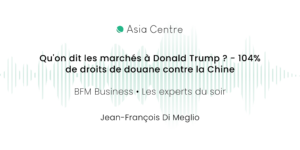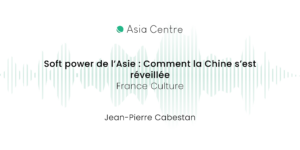Débat Asie avec Philip Golub le 18 janvier à 17h30 à l’ Inalco.
La conférence se tiendra en anglais et sera animée par le Dr. Jean-Luc Racine (CNRS, Asia Centre).
Philip Golub est Professeur de relations internationales à l’Université américaine de Paris. Il a enseigné à l’Institut d’études politiques de Paris (IEP) et l’Université Paris 8. Un des fondateurs du quotidien de langue anglaise The Asia Times il a aussi été Conseiller de la rédaction du Monde diplomatique. Ses recherches en sociologie historique des relations internationales sont axées sur la mondialisation, la construction du système atlantique moderne, et la géopolitique postcoloniale. Il est l’auteur de Power, Profit and Prestige : A History of American Imperial Expansion (Pluto, 2010), Une autre histoire de la puissance américaine (Seuil, 2011), et de East Asia’s Reemergence (Polity, 2016).
Eaux troubles: Donald Trump, la Chine et l’avenir des équilibres en Asie Orientale
In his first public pronouncements and acts Donald Trump seems to be putting into question the key foundations of US international relations since 1945. He notably appears to want to undo longstanding frameworks of Sino-American relations, founded on the recognition of one China and on the webs of economic interdependence that have been constructed in recent decades, based on a narrow nationalist reading of US interests. If confirmed, the new policy outlook would have major implications. The United States has been the predominant power in East Asia and the Pacific since 1945 and the regulator of the regional balance. A pronounced shift towards exacerbated nationalism and unilateralism would intensify regional security competition and possibly destabilize the world capitalist economy. The question is whether we are facing a major discontinuity in policy and praxis or whether structural constraints on the unilateral and highly personalized exercise of power will prevail.




